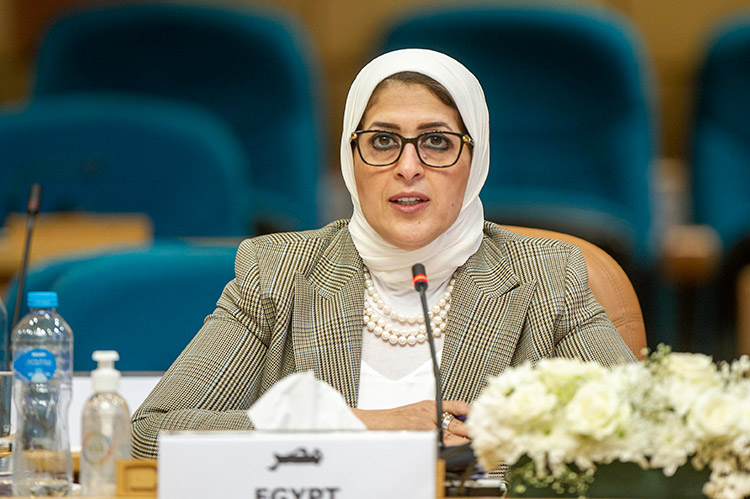
13 October 2021 - The third meeting of the Regional Subcommittee for Polio Eradication and Outbreaks took place on Tuesday 12 October as part of the WHO Eastern Mediterranean Region’s Sixty-eighth session of the Regional Committee.
Dr Hala Zayed, Minister of Health and Population, Egypt, and Co-Chair for the Subcommittee, reported back to Member States on the key achievements of the Subcommittee and progress made in 2021 on polio eradication in the Region. The Subcommittee first convened in March and has since attracted increasingly sustained, high-level participation from key regional leaders and global stakeholders, engaging them in discussions driven from the regional level.
Key global polio eradication stakeholders were invited to join the session, including the Polio Oversight Board Chair Dr Chris Elias (President, Bill & Melinda Gates Foundation), and members Dr Rochelle Walensky (Director, US Centers for Disease Control and Prevention – CDC), Dr Seth Berkley (CEO, Gavi, the Vaccine Alliance) and Dr Michael McGovern (Chair of International Polio Plus Committee, Rotary International). This high-level engagement of core global partners, alongside key regional counterparts like Mr George Laryea-Adjei (UNICEF Regional Director for South Asia) and the WHO Regional Director for Africa, Dr Matshidiso Moeti, sends a clear signal to Member States that polio is a key regional public health emergency, and the solution we seek must be regionally led.
Interventions on polio were made by multiple Member States, including Bahrain, Djibouti, Egypt, the Islamic Republic of Iran, Pakistan, Saudi Arabia, Sudan and the Syrian Arab Republic, reflecting broader engagement on polio beyond the core group of countries battling wild poliovirus and outbreaks of circulating vaccine-derived poliovirus. It has often been said that polio anywhere is a threat to children everywhere, and the experience of the past two years, both in terms of the spread of the COVID-19 pandemic and the rapid expansion of cVDPV outbreaks across the Horn of Africa, underscore the risks posed to all states by viruses that do not stop at international borders. Polio is the entire Region’s problem to solve.
Recent developments in Afghanistan, the vulnerability of the country’s health system and the implication for polio eradication, loomed large on the meeting’s agenda. Dr Chris Elias underscored the importance of an urgent restart of house-to-house polio vaccination campaigns in the country, and that this is made a priority.
Gavi, the newest partner of the Global Polio Eradication Initiative (GPEI), also spoke to the remaining challenges the programme faces in Afghanistan and Pakistan. Dr Seth Berkley reiterated Gavi’s “continued support to strengthen routine immunization delivery” and applauded the commitment of the new GPEI strategy to focus on intensifying efforts to integrate polio vaccination and the expanded programme on immunization (EPI) during the last mile.
With just two cases of wild poliovirus reported this year, one each in Afghanistan and Pakistan, and discussion growing around what that means, the Subcommittee Co-Chair Dr Hala Zayed framed the moment as an “unprecedented opportunity” to stop polio; a truly “critical juncture”.
Dr Rochelle Walensky echoed this point in her intervention, noting that “the opportunity to eradicate polio has never been better,” despite the challenges posed across the Region by multiple emergencies and the ongoing COVID-19 pandemic. She also emphasized the unyielding support of the United States for the two remaining polio-endemic countries, noting that US CDC is “committed to identifying ways to help Afghan children no matter where they are, and to identifying ways to reach the chronically missed children of Pakistan.”
Dr Michael McGovern reiterated Rotary’s support to Member States in the Region and praised the frontline workers who “inspire us each day”.
What is increasingly evident as the work of the Regional Subcommittee gathers pace, is that the Member States of the Region and their partners believe that there are twin opportunities before us: the epidemiological opportunity presented by the lowest-ever WPV case counts, and the political and practical opportunity presented by having so many core stakeholders at the same table, committed to delivering on our promise to the Region’s children – together.


